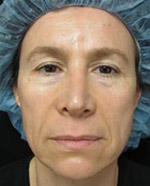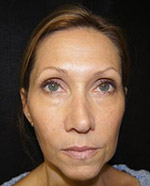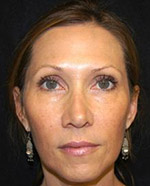Antioxidants: What you should know
By Bernard I. Raskin, M.D.
Ultraviolet light causes many forms of damage to your skin cells. The ultraviolet light rays cause breaks in your DNA which often results in cancer years later. Ultraviolet light smashes into cell proteins causing atomic particles to shoot off at high speeds and smash into other proteins and break them apart into other particles that continue to cause damage. So even a small amount of ultraviolet light can result in a large amount of damage to the proteins your cells need for normal function—kind of like an earthquake causing a tsunami.
Antioxidants are chemicals that protect cells by neutralizing external forces (such as damage from the sun or pollution) and internal factors (for example ingested toxins). They work by capturing the high speed particles before those particles can smash into important structures, almost like a hockey net stopping a speeding hockey puck. There are many antioxidants available but some of the strongest antioxidants are Vitamins C, E, green tea, and Ferulic Acid. Antioxidants for your skin work best when applied directly to the skin rather than as dietary supplements. These agents assist in skin repair and the strengthening of blood vessels.
Vitamin C is also known as ascorbic acid and its active form is called L- Ascorbate. Vitamin C stimulates collagen production, assists to break up pigmentation and contributes to faster wound healing. Vitamin C also helps reduce skin redness. Vitamin C, combined with UVA/UVB sunscreen or sunblock, gives superior sun protection that is better than either preparation alone.
Vitamin E is also known as Alpha-tocopherol. Vitamin E provides significant protection against skin redness and protects skin cells from self destructing due to sunburn and the oxidative effects of UV exposure.
Green tea antioxidants are known as EGCG or by its spelling bee name of epigallocatechin gallate. Studies suggest that EGCG have anti-inflammatory and anti-cancer properties that may help prevent the onset and growth of skin tumors. Topical application of EGCG importantly may prevent UV induced immunosuppression and precancerous cell changes after UV exposure. EGCG is respected for its ability to reduce, eliminate and neutralize free radicals and the damage they cause. Many scientific studies and scholarly articles have concluded that green tea topically applied to the skin offers substantial benefits and may impact the development of skin cancer.
Ferulic acid (FA) is an extremely potent antioxidant found in the seeds and leaves of most plants, especially in the brans of grasses such as wheat, rice and oats. Plants can be significantly affected by ultraviolet light. I suppose if you are a tree, you create your own shade which might be why trees aren’t sources of ferrulic. But many of the strongest antioxidants used today come from the plant world. Exposure to ultraviolet light actually increases the antioxidant potency of ferulic acid.
Sagging, wrinkled skin is something we can see from the outside, but aging occurs from the inside out. Not only is skin health at risk, but all tissue in the body begins to deteriorate over time. Using antioxidants along with proper sun protection may over time significantly reduce the signs of aging and skin damage we accumulate throughout our lives.
For more information contact Advanced Dermatology & Cosmetic Care at 661.254.3686 or visit www.CreatingBeauty.com













